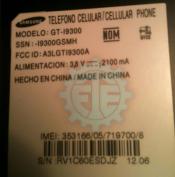Samsung's deception will net US government $2.3 Million
Posted by: Jon Ben-Mayor on 08/22/2014 06:04 AM
[
 Comments
]
Comments
]
Samsung Electronics America Inc. was found to be deceiving the US government into purchasing Chinese made products in violation Trade Agreements Act and have agreed to pay a fine. The allegations resolved by the settlement were originally brought in a lawsuit filed by Robert Simmons, a former Samsung employee, under the False Claims Act’s whistleblower provisions, which permit private parties to sue for false claims on behalf of the United States and to share in any recovery. Mr. Simmons’ share of the settlement has not yet been determined.
 According to a press release from the USDOJ, Samsung agreed to pay $2.3 million to resolve allegations that it caused the submission of false claims for products sold on General Service Administration (GSA) Multiple Award Schedule (MAS) contracts in violation of the Trade Agreements Act of 1979 (TAA), the Justice Department announced today. Samsung is an electronics distributor and marketer headquartered in Ridgefield Park, New Jersey.
According to a press release from the USDOJ, Samsung agreed to pay $2.3 million to resolve allegations that it caused the submission of false claims for products sold on General Service Administration (GSA) Multiple Award Schedule (MAS) contracts in violation of the Trade Agreements Act of 1979 (TAA), the Justice Department announced today. Samsung is an electronics distributor and marketer headquartered in Ridgefield Park, New Jersey.
“The Department of Justice is committed to protecting public funds and guarding against abuse of federal procurement programs,” said Assistant Attorney General Stuart F. Delery for the Justice Department’s Civil Division. “This settlement upholds important trade priorities by ensuring that the United States only uses its buying power to purchase from countries that trade fairly with us.”
MAS contracts are contracts awarded by GSA to multiple companies supplying comparable products and services. Once GSA negotiates and awards the contract, any federal agency may purchase under it. Like many other federal procurement contracts, GSA MAS contracts require the vendor to certify that all products it offers for sale comply with the TAA. The TAA generally requires the United States to purchase products made in the United States, or another designated country with which the United States has a trade agreement.
Samsung has authorized resellers who hold GSA MAS contracts. Samsung certifies to the authorized resellers that Samsung will provide TAA compliant products and the resellers in turn list those products on the resellers’ GSA MAS contracts. The settlement resolves allegations that, from January 2005 through August 2013, Samsung caused resellers of its products to sell items on their GSA MAS contracts in violation of the TAA by knowingly providing inaccurate information to the resellers regarding the country of origin of the goods. The United States alleges that Samsung represented to the resellers, who in turn represented to federal agencies, that the specified products were made in TAA designated countries, generally Korea or Mexico, when the specified products were in fact manufactured in China, which is not a TAA designated country.
“It is unacceptable to sell unauthorized foreign electronics to the United States,” said GSA Acting Inspector General Robert C. Erickson. “We expect all companies doing business with the federal government to comply with contracting laws.”
 According to a press release from the USDOJ, Samsung agreed to pay $2.3 million to resolve allegations that it caused the submission of false claims for products sold on General Service Administration (GSA) Multiple Award Schedule (MAS) contracts in violation of the Trade Agreements Act of 1979 (TAA), the Justice Department announced today. Samsung is an electronics distributor and marketer headquartered in Ridgefield Park, New Jersey.
According to a press release from the USDOJ, Samsung agreed to pay $2.3 million to resolve allegations that it caused the submission of false claims for products sold on General Service Administration (GSA) Multiple Award Schedule (MAS) contracts in violation of the Trade Agreements Act of 1979 (TAA), the Justice Department announced today. Samsung is an electronics distributor and marketer headquartered in Ridgefield Park, New Jersey.“The Department of Justice is committed to protecting public funds and guarding against abuse of federal procurement programs,” said Assistant Attorney General Stuart F. Delery for the Justice Department’s Civil Division. “This settlement upholds important trade priorities by ensuring that the United States only uses its buying power to purchase from countries that trade fairly with us.”
MAS contracts are contracts awarded by GSA to multiple companies supplying comparable products and services. Once GSA negotiates and awards the contract, any federal agency may purchase under it. Like many other federal procurement contracts, GSA MAS contracts require the vendor to certify that all products it offers for sale comply with the TAA. The TAA generally requires the United States to purchase products made in the United States, or another designated country with which the United States has a trade agreement.
Samsung has authorized resellers who hold GSA MAS contracts. Samsung certifies to the authorized resellers that Samsung will provide TAA compliant products and the resellers in turn list those products on the resellers’ GSA MAS contracts. The settlement resolves allegations that, from January 2005 through August 2013, Samsung caused resellers of its products to sell items on their GSA MAS contracts in violation of the TAA by knowingly providing inaccurate information to the resellers regarding the country of origin of the goods. The United States alleges that Samsung represented to the resellers, who in turn represented to federal agencies, that the specified products were made in TAA designated countries, generally Korea or Mexico, when the specified products were in fact manufactured in China, which is not a TAA designated country.
“It is unacceptable to sell unauthorized foreign electronics to the United States,” said GSA Acting Inspector General Robert C. Erickson. “We expect all companies doing business with the federal government to comply with contracting laws.”
Comments






